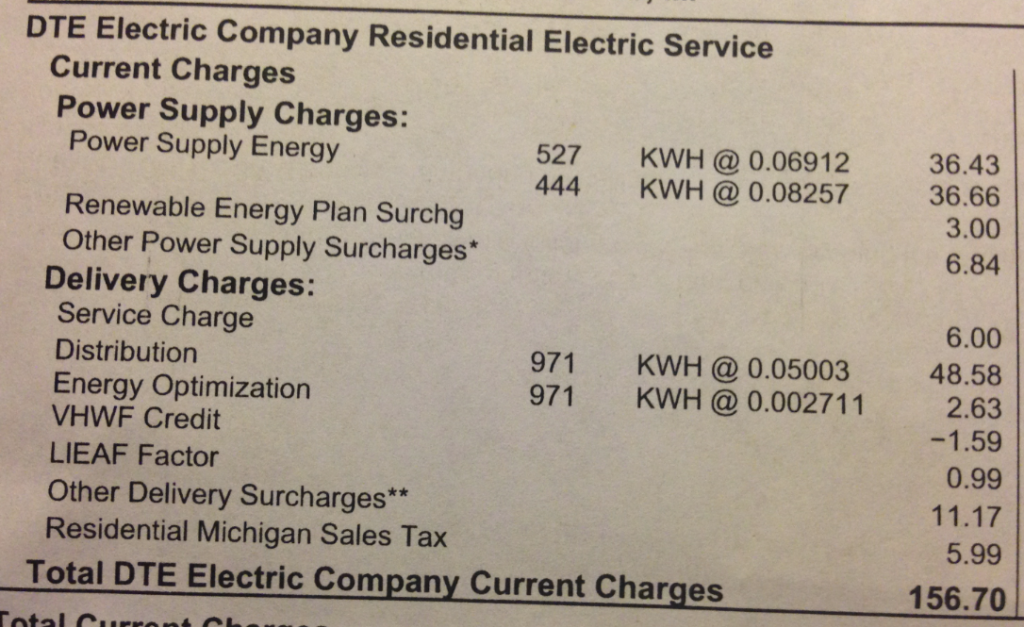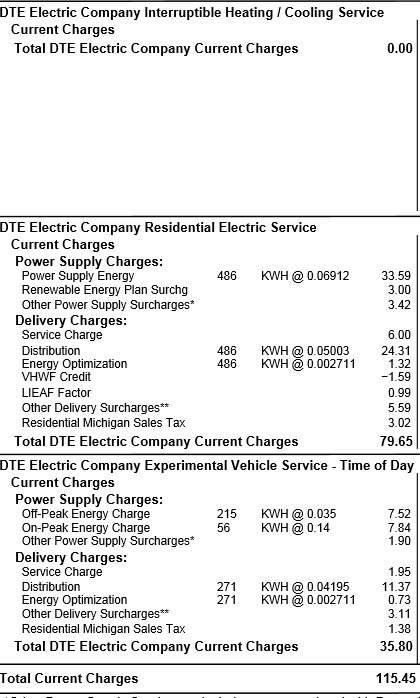Looking closer, I guess you would also remove the "Renewable Energy Plan Surchg ($3.00)", "VHWF Credit (-$1.59)", and "LIEAF Factor ($0.99) when calculating the per kWh fees to add onto the "Power Supply Energy" rates to get your actual rates. These fees are the same between the two bills shown, so they are part of the "base fees" you pay simply to have electricity at your house. Since the other fees on your bill vary by usage (looking at the other bill shown), yo can't really call them "base fees"
You could subtract off the sales tax as a "base fee" when calculating your per-kWh delivery/surcharge rates and then add it back in after calculating the surcharges, so your per-kWh price doesn't include sales tax on the ~$8.50 of base fees. However, at this point, you're getting down into the fractions of a penny, so how critical is it? Also, I've found that electric bills have odd sales tax applied to them. The $156.70 electric bill at the beginning of this thread only was charged 3.8% sales tax if sales tax was paid on the bill's total amount. I suspect your sales tax rates aren't really that low. Only portions of electric bills gets charged sales tax, and even then, it's not at the normal sales tax rate. For example, I'm on Net Metering with a 5 kW solar system. 8 or 9 months out of the year, my bill comes to $9.02. $9.00 for the connect fee and $0.02 for sales tax. That comes out to 0.22% sales tax, even though the normal sales tax rate around here is between 7% and 8.5% (depending upon the county and city). So, while I'm paying sales tax on my bill, it's either a very low rate for some reason or they are only charging me sales tax on something like 29 cents of the $9 line item on my bill.
Basically a long way of saying that once you subtract off the major recurring fees that don't vary based on your usage, you'll get pretty close to your actual rates. Without having access to the formulas the electric company is using, it's pretty tough (and likely of limited value) to get down to the precision of tenths of a penny per kWh.
 [/URL]
[/URL]




